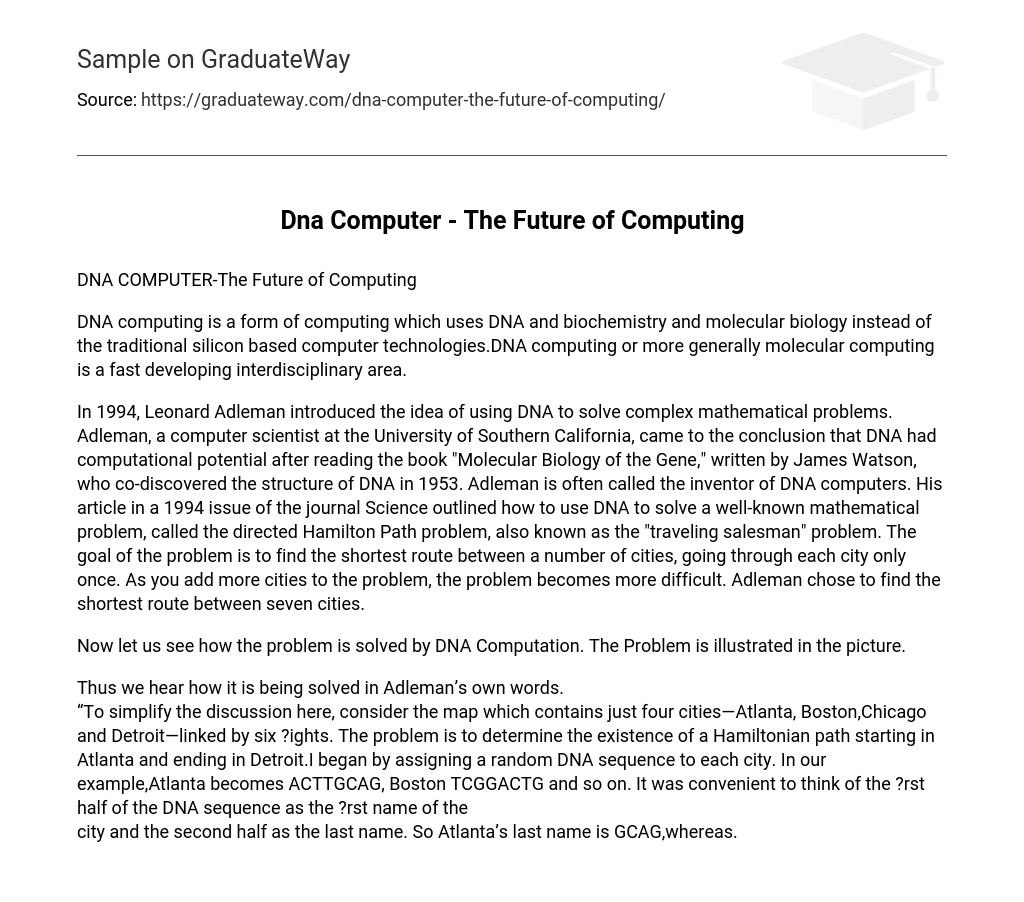DNA computing, also referred to as molecular computing, is rapidly progressing. It involves the application of DNA, biochemistry, and molecular biology in lieu of conventional silicon-based computing approaches.
Leonard Max Adleman, who is an American theoretical scientist in the field of computer science, currently serves as a professor of computer science and molecular biology at the University of Southern California.
In 1994, Leonard Adleman, a computer scientist at the University of Southern California, used DNA to solve complex mathematical problems. Adleman’s understanding of DNA’s computational capabilities was based on his reading of “Molecular Biology of the Gene,” a book authored by James Watson, one of the co-discoverers of DNA’s structure in 1953.
In a 1994 issue of the journal Science, Adleman introduced a solution to the directed Hamilton Path problem using DNA computers. This problem, also known as the “traveling salesman” problem, revolves around finding the most efficient route between multiple cities without revisiting any city. As more cities are included, the complexity of this challenge increases. Adleman’s primary objective was to identify the shortest route among seven cities.





